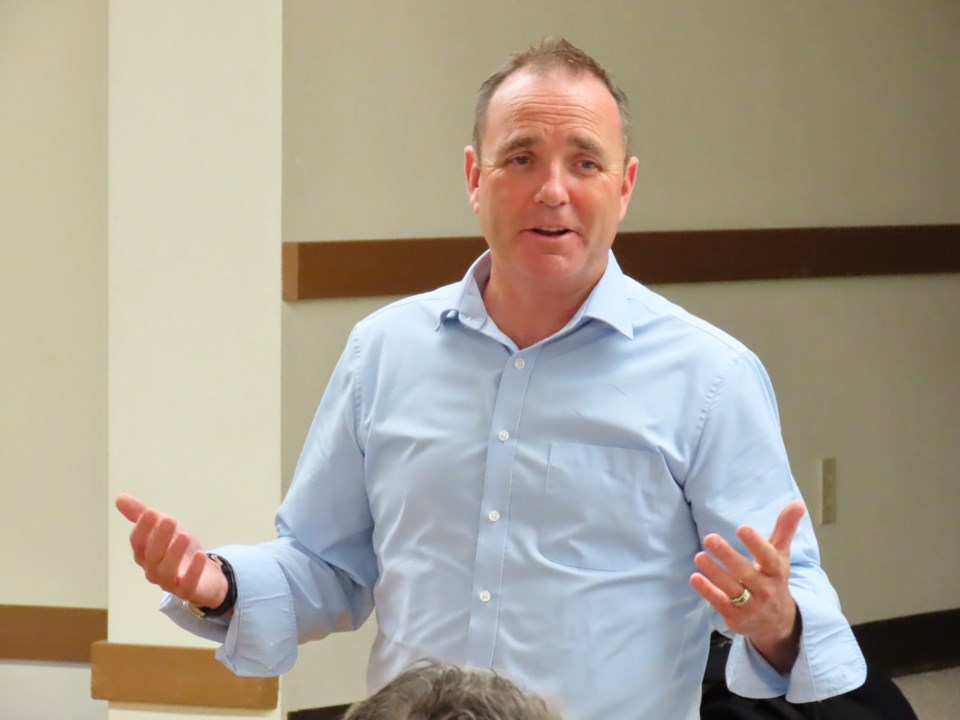OUTLOOK - The federal government handed down its latest budget last week, and the numbers and initiatives are very much a mixed bag, depending on who you're talking to about it.
Promoting itself as 'Fairness for Every Generation', Budget 2024 is highlighting Ottawa's plan to "build more homes, faster, help make life cost less, and grow the economy in a way that helps every generation get ahead."
Addressing housing, the Liberal government says their goal is to unlock 3.87 million new new homes by 2031 and make it easier to rent while Canadians are saving for their first home.
As well, Ottawa is looking to reach out to younger Canadians with measures they say will make education, housing, and everyday living costs more affordable for Millennials and Gen Z citizens, including increasing student grants and loans to keep up with the costs of education, launching a new Youth Mental Health Fund for support access, and providing job placement and employment opportunities through the Youth Employment and Skills Strategy.
In the tax sector, it's said that high-worth individuals, corporations and trusts will pay more in capital gains taxes. The inclusion rate increases to 66%, up from 50%, on capital gains above $250,000 for individuals and on all capital gains for corporations and trusts. The change is expected to yield an additional $19.4 billion over four years.
Fraser Tolmie, Conservative MP for the Moose Jaw-Lake Centre-Lanigan riding that includes Outlook, says the newest spending formula from the federal government gets a failing grade.
"What kind of grade would I give this budget?" he said, when asked how he'd rate the latest numbers from Ottawa. "Well, it's another $40 billion defecit, so I'd say a -$40 billion out of ten!"
Tolmie says the Liberal-led government isn't looking out for the best interests of everyday Canadians.
"No, they don't," he said. "I don't want to sound like I'm shooting you down here, but this Liberal government doesn't have anyone's best interests at heart. Their best interests are only to keep themselves in power, and they're doubling down on bad decisions that they've been making to try and prove that they're right, and they're not working! Everything that they're spending money on is going to be passed on to the next generation, and that was their opening line in their budget; it said, 'It would be irresponsible and unfair to pass on more debt to the next generation'. But they're doing that. That was their opening statement, and everything else in their budget does not line up with being fiscally responsible."
Tolmie says what he was looking for in Ottawa's latest spending plans was some positivity surrounding issues that are facing Canadians, but he says he hasn't found anything.
"I was looking for some hope, and I didn't find it," he said. "We're hoping that they'll recognize the impact that they're having on farmers and pass our Bill 234 and give relief to farmers so that people can affordable groceries, but again, they're not willing to listen to the Opposition."
The Conservative MP believes that the results of the next federal election may have been decided as much as a year ago and that Canadians are just waiting to cast their vote for what he believes will be a Conservative return to power. Tolmie says if that's what happens, then the next government will have some work ahead of them, but they'll work to provide relief to Canadians.
"I think the next federal election was decided about a year ago, and people are just waiting," he said. "What will happen is we will hopefully get into power, but we're going to have our jobs cut out for us to clean up this mess. It's going to take a lot, but I think we've got it in us, and people are looking for common sense and a government that's going to listen to the people and be reasonable. The tax burden is just too much; it's compounded because that federal policy is trickling down and affecting provinces and municipalities."



